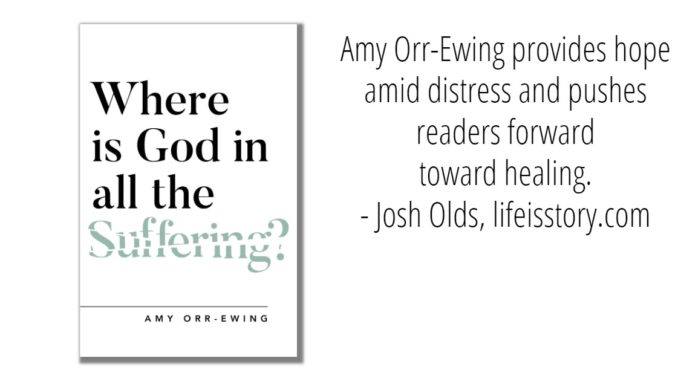
Also by this author: Lead Like the Real You: Wisdom for Women on Finding Your Voice, Pursuing God's Calling, and Leading with Courage
on September 2020
Genres: Non-Fiction, Christian Life
Buy on Amazon
Goodreads

Suffering and evil affect us all, both at a general level, as we look at a world filled with injustice, natural disasters and poverty, and at a personal level, as we experience grief, pain and unfairness. And how we think about and process the reality of pain is at the heart of why many people reject God.
Dr. Amy Orr-Ewing is no stranger to pain and gives a heartfelt yet academically rigorous examination of how different belief systems deal with the problem of pain. She explains the unique answer that is found in Christ and how he can give us hope in the reality of suffering.
This empathetic, easy-to-read and powerful evangelistic book is good for both unbelievers and believers alike. It will help those hoping to answer one of life's biggest questions as well as those who are either suffering personally or comforting others.
Where is God in all the Suffering? It’s a question both easy and difficult to answer. The easy answer, the typical answer, comes in the line from that old Footprints poem “It was then that I carried you.” Except many don’t feel carried through their suffering. God seems distant or even absent. He seems indifferent to pain and suffering, whether it’s personal tragedy or global pandemic.
Theologians have long academized the problem of pain, standing apart as an impartial third-party. This is great for philosophical reflection, but does nothing to help the questioner. And we should always make sure we are answering the questioner, even if that means not directly answering their question. The other side of this response is often a reliance on platitudes and emotionalism. These, too, are no balm to the sufferer. Amy Orr-Ewing takes a balanced approach, writing out of her own suffering yet pointing to foundational principles in Scripture.
What sets Where is God in all the Suffering? apart from any other work on the subject is that Orr-Ewing is intensely practical and personal. She shares her own story, perhaps taking her cue from C.S. Lewis’s classic work on the subject. She also arranges her conversations topically. She talks about anger, grief, mental illness, violence, natural disasters, and systemic suffering. This isn’t a story told in the abstract, but a treatise that deals specifically with some of the most intense areas of suffering.
The chapter on mental illness alone is worth the book’s price. Mental illness is often overlooked and not spoken about at all, let alone in relation to suffering. Simply validating things like depression and anxiety as legitimate forms of suffering—acknowledging them as real and a brokenness that should be grieved over—goes a long way. While the book’s length keeps most chapters from doing a deep dive, Orr-Ewing lingers in this area and speaks life into it.
This is a book I would read a chapter a day. Treat it like a devotional. Savor it for just a few minutes every day and spend time contemplating it. Where is God in all the Suffering? is the beginning of many conversations. It’s meant to provide hope amid distress and push readers forward toward healing. It does all those things very well.
